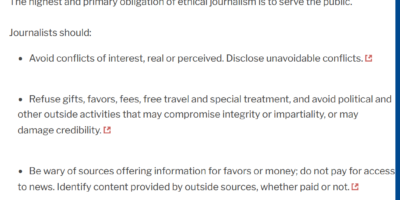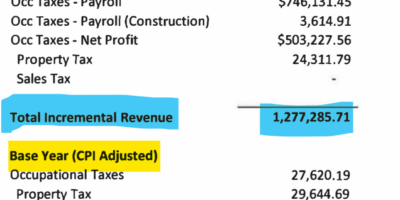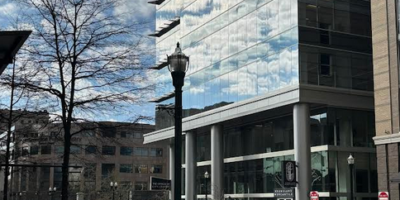By Andrew Battista
On Saturday, February 27, Greater Liberty Baptist Church on Chestnut Street hosted a program and protest march in which some fifty people gathered to decry violence, gambling, and drug trade in the East End neighborhood.

Protesters walk down Race Street, near the convenience store where Dwayne Johnson was shot on June 14. Photo by Andrew Battista.
Members of the William Wells Brown Neighborhood Association and representatives from the Lexington Police Department C.L.E.A.R. Division (Community Law Enforcement Action Response) joined members of Greater Liberty Baptist Church to renounce violence that threatens to diminish the quality of life in Lexington’s East End.
“The trustees were in a meeting here at church one evening, and I was actually speaking to this very issue when we heard three shots ring out, right in front of the church, right across the street,” said John C. Lee, the church’s senior pastor. “They shot a young man, and we went to his aid. That incident was the first of a series of shootings and related crime in our neighborhood.”
In 2009, there were thirteen homicides in Lexington, and over half of them (seven) took place in the 40508 zip code, the neighborhood in which Greater Liberty is located. But homicide is not the only manifestation of violence in the William Wells Brown neighborhood. Last year, 699 assaults, 173 robberies, and 34 rapes were reported, an inordinately high number when compared with Fayette County as a whole.
“We’re here to be a partner with you,” said Sgt. Brian Maynard, a Response Supervisor for the C.L.E.A.R. unit. “We’re not here to tell you that we’re going to solve this issue as the police. This is your issue, your community, and you’re going to be the one solving this. But I’m proud that you’re getting together as a group and saying, ‘we’re tired of this.’”
I found my way to the program and march with the hope that Lexington’s East End residents could catalyze a renewed sense of obligation to our community. Like many of the people who attended last Saturday, I could not forget a gunfight that took place early on the morning of June 14, 2009. At least twelve shots, piercing and clear, woke me at about 4:00 A.M. I did go back to sleep, but when I emerged the next morning and headed out to the farmer’s market on my bicycle, I had to navigate around a police blockade.
Twenty-year-old Dwayne Johnson, who went by the nickname “Man Man,” had been shot to death that night in front of the Pak-n-Save Market, on the corner of Race Street and East Third. Over a month elapsed before authorities announced that they had apprehended his killer. According to the U.S. Marshalls, Johnson was murdered over a dispute in a game of craps.
After an hour-long sequence, during which a litany of clergy, law enforcers, politicians, and community leaders spoke, the congregation left and walked around the East End. Singing spirituals, hymns, and songs that have been integral to the civil rights movement, we circled past Pak-n-Save, walked down Race Street, travelled across South Martin Luther King, Jr. Boulevard, and eventually returned to Greater Liberty.
Lee, who seemed dismayed by the modest turnout at the march, suggested that many people had stayed home to watch the University of Kentucky men’s basketball game, a contest that the Wildcats would go on to lose. People in the East End have to refine an ability to harbor righteous indignation, Lee suggested, and if the violence is to stop, the church has to spearhead an ethic of peace and restitution.
“I think that when we study history, we discover that the church was always more than a place of worship,” said Lee. “It was the heart of the community. It became the economic center, the school house. I believe that the time of the church being just a place for worship on Sunday is over. We must offer holistic ministry and attend to the needs of all humanity.”
Lee explained that his fervor for social justice is born out of a Christian ethic that demands we seek justice in the places where we live.
“If you’re hungry, can I tell you what salvation is? How about giving me some bread? If I’m naked, how about giving me some clothes. If I’m homeless, put a roof over my head,” said Lee. “I’m not interested in a God that can save me and take me to heaven but can’t clothe me on this side, can’t put a roof on my head on this side, can’t keep me safe on this side.”




Leave a Reply